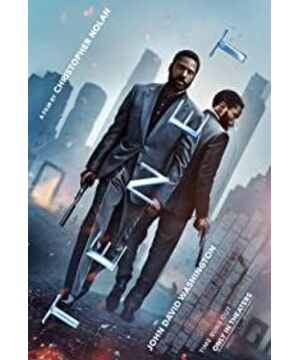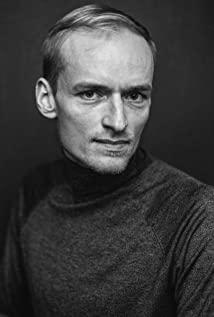After the release of "Creed", CGTN reported that some Chinese viewers compared Nolan's new work to this year's Jiangsu Province college entrance examination mathematics paper, "I can't even understand the question, let alone answer it." Taking watching Nolan's films as an intellectual challenge has become a common argument in major critics, and almost all "Creed" film reviews have also followed the path of problem-solving and problem-solving. Undoubtedly, the film is not lacking in seemingly logical plot constructions, but the content of the creed itself challenges whether this work can be fully regarded as a work of science fiction:
Everything that has happened will happen, and will always have happened.
Everything that has happened will happen, everything that will happen has happened.
This formula is syntactically similar to Hegel's famous thesis "whatever is real is rational, and whatever is rational is real", but the applicable time horizon is much wider than the latter. The villain, Sator, is an agent of a future humanity in that "will happen" future. If the protagonists in the play can interact with future humans, it has been confirmed that the future "has happened" in the way these people live, so at least for the entire time period in between, it is applicable.
In the classic Hume problem, if in the past, a lighter was used to burn wood, and after a while, the wood would burn, then this does not prove that a lighter can burn wood; , the wood will burn—that is, the chronological generation of things in the past, never proving causality within the sequence of events. In other words, Hume proved that belief in cause and effect does not have a solid foundation for it. Does the belief defined in the Creed completely dispel the chaos of the future that Hume's problem caused people to see after awakening them from the numbness of reason? One's answer to this may be to first resort to the "measurement method", that is, beliefs are established only between the present and the future human beings that intersect with the protagonist; outside this time, chaos is not dispelled . But at the end of the film, Sator accuses the protagonist of being crazy in a dialogue with the protagonist. This dialogue begins with the protagonist accusing Sator of being crazy, and he asks Sator: "What's more crazy than destroying the world?" Frustration wants to destroy the world This is the full-time mission of the big heroes shaped by the film industry. Many lines in the film will tempt people to identify the shadow of 007, Marvel heroes or other Hollywood male protagonists from the protagonist, especially the last lines of the film. : "We saved the world that may be going to destruction. The world will never know about it, and even if it does, it won't care, because no one cares about the bomb that didn't detonate. Only those who have saved the world know that it's a bomb that didn't detonate. A disaster, a crisis that no one knows about does exist, and that bomb has the power to really change the world." But in fact, Sator never admitted that he wanted to destroy the world, he immediately denied the protagonist's accusation in the dialogue, and replied, I am working my life for the birth of a new world.
Returning to the past to destroy the conditionality of the future existence of oneself will lead to a time paradox. This understanding is very common and appears in many fictional works. However, in "Creed", this paradox has an unprecedented use. It is no longer a situation that needs to be avoided by all means, and has become the only way to save mankind in Sator's mouth - the destruction of the current world caused by the paradox is not the destruction of mankind, the correction of the paradox will make "time reverse its direction" , leading to another future, and those who face destruction in the present are "bathed in their sunshine" which will also warm "the descendants of future generations".
Critics of many contemporary Hollywood films have mentioned that the major crises affecting the survival of the world that often appear in blockbuster movies are capitalism’s attempt to divert people’s attention from real issues such as class struggle, ecological issues, etc. But in "Creed", the great crisis of the world comes from the actions of people in the future who want to solve real problems. When the protagonist asks Sator "Why did they kill us", Sator replied: "Because of their The sea rises and the water dries up. Don't you understand? They have no choice but to turn the clock back. It's all our fault." Some critics of Marxism will no doubt be incensed by this setting, perhaps commenting that the protagonist is trying to save It is nothing but the "everyday world" of the current capitalist evil, for which the Hollywood forces represented by Nolan maliciously present the resistance forces as villains. But first of all, in this setting, neither Sator nor future humans can be simply identified as "villains", as opposed to the assumption that "every generation is trying to survive, which is exactly what they are doing" The protagonist, the former can even give up his own existence for the "descendants of future generations" (not just giving up life, but giving up the existence that contains all traces of life), which embodies more "altruism" than the protagonist's justice , these are not the characteristics of villains. Secondly, the content of the creed has nothing to do with the preservation of the current order, but to preserve the order of a certain time, that is, to ensure the connectivity between "has happened" and "will happen".
The reason why Nolan's new work can once again be regarded as a test of "intelligence" is precisely because it builds a completely logical and strictly accessible between "has happened" and "will happen" - the protagonist and the Neil acts twice in Sator's art warehouse in Oslo Freeport, both in forward time and in reverse time. The different interpretations of these two identical plots are examples of the strict logic constructed by Nolan: the viewer passes through the same scene twice. A scene, however, they do not feel that they are watching the same episode, although in fact it is the same episode, and they can immediately think that it is the same episode, recognizing the wrong of the same The same difference delay is the source of the shocking experience of the audience's vertigo. The plot here does not unfold with the new actions of the characters, but comes from the non-identical continuation of the same, which has no time of its own, and thus has no existence (être) in relation to the same. Nor is it generated (devenir), it is possible to be (peut-être) of the same. The time order between "has happened" and "will happen" that the protagonist tries to guard is a non-order from the very beginning, and the logically wrong sentence "what has happened will happen" is a strict definition of the film's plot construction. The axioms of logic, but they themselves have the same properties as the reversal of time that Sator hopes, they are not components in a normal sci-fi world, because the latter should still be a world that can be understood by experimental physics, And these two are not. So when the protagonist accused Sator of trying to destroy the world, Sator accused the protagonist of being insane: "When I die, the world is destroyed with me, and your knowledge disappears with you. Your belief is numb, You are a lunatic."
In fact, whether it is the madness of Sator or the protagonist, whether it is turning time to usher in another future for mankind, or letting the time that has already happened happen in the future, these two responses to the crisis in the world have already No longer in the fiction of science fiction, but in the world of fictional surgery. The fiction of the world of surgery is defined by the contemporary French philosopher Meillassoux as: “The fiction of the world of surgery points to a world where science no longer exists, and experimental science cannot be applied in these worlds.” In a sci-fi fictional world In fiction, even if human's understanding of reality has changed greatly, and the relationship between human and the world has also changed, and they will still be within the range that science can explain, science will change, but it will continue to exist . At the center of sci-fi fiction, science is always there, even in unrecognizable ways. [1] To arrive at what Sator envisages or he agrees with future human beings, the turning of time after the destruction of the whole of mankind to another future where mankind still exists, the turning time experienced during this period is not within the applicable scope of experimental science - This is not the same as going back to the past and changing a small part. All people existed at that time and will still exist in the future. Only some events in the world have changed - what is involved here is the destruction of a whole time and Turning, after turning, there will be no trace of the previous time, so for the time of this turning, and the world before turning, the experimental science in the world after turning no longer comes into the two, and The possibility of developing experiments. On the other hand, the audience can understand from the experience of the non-identical difference of the same person shown in the film that the creed of the protagonist also does not dispel the chaos in Hume's problem, because even if he has an intersection with the future human beings, witnesses Whether it is "has happened" or "will happen" is still undetermined in the presence of what is about to happen, which is why the fight with the heavily armed black man in the Freeport Art Warehouse in sequential time is so There is tension, this "has
The believed time in "Creed" is the super-chaotic time, it does not have any position, so it can be in the order time, superimposed on the order time (the first two are the positions of the protagonists), or the order time Outside (this is the position of the villain Sator), it can also be absent at the same time, it can create time or even destroy time. In Time Without Generation, Meiyasu defines this super-chaotic time as the fundamental problem of our era, and according to the characteristics of this time, he proposes: "The problem of our era is neither existence nor generation, not representation. Not creation, but a very special possibility, not even a formal possibility, but a real and condensed possibility, which the philosophers call possible-to be (pêut-être) . . . Philosophy is not about being, but about being possible (l'affaire de la philosophie n'est pas l'être, mais le peut-être)." [2] Mayasus would henceforth present this "scientific knowledge no longer exists" the world” as the mission of this era. Perhaps, we can completely regard Nolan's "Creed" as an attempt to witness this super-chaotic time, then in fact, through a rigorous and logical analysis, the details of the film are disassembled and assembled to construct a transparent Efforts to explain have not been successful, and another difficult question arises before us. How did Nolan witness to a "world where scientific knowledge no longer exists," and what are the possibilities of this witness?
Of course, all the analysis in this article up to here is how Nolan gave his testimony, and some will object that they can claim that all this is the reviewer's own invention, even if the reviewer's overly philosophical analysis is Completely established, and there is no reason to think that what Nolan wants to show is "hyper-chaotic time", which only exists in the minds of commenters. In fact, no matter what Nolan is going to do, the creed of the protagonist in the film has long been the case for watching all films: "Everything that has happened will happen, and everything that will happen has happened." Of course, A movie happens long before it is released, but a movie exists after it is released, and a movie doesn’t exist only because someone takes an image of something, the circulation of a movie is a necessary condition for a movie to exist; of course, on the screen What will happen has already happened, the movie we are watching, is what happened in the past, but we are not sure what happened in the past. It doesn't even matter whether the film unfolds according to a "script", giving up the power of its own image: for one of the most improvised, the great European art film director, who is not bound by any script, according to all the actors and the conditions of the time and place. , is the same situation as a director who is completely at the mercy of accepting a Hollywood screenwriter's "script", like a manipulator. When improvising a film without a "script", the vast possibilities faced by the director, the infinite chaos of the reality faced by the director, at the moment when the film becomes a film, the chaos has already passed through self-limitation, self- The normalized, presented "hyper-temporal chaos" could not have been made there as a video and transmitted through the film without distortion. But "super-chaotic time" can be in the happening of what has happened, and in the already happening of what will happen, to witness it, the director must let his protagonist watch his own movie - sequential time The protagonist in the movie watched his own movie in the art warehouse in Freeport, and after that, in reverse time, he acted his own movie, and he came to the position he saw before, where he may or may not be. The creed of the protagonist in the movie is also the creed of his own movie. He understands that his movie already exists, and he must believe in this movie, but in fact, he is also making a movie that has nothing yet. Time is still a super-chaotic time. In other words, the time of super-chaos is also the time when watching a movie and making a movie at the same time. Existence is not the key issue, but the key issue is maybe-is (pêut-être)
The final conclusion of the film deliberately creates a sense of immediate vision (déjà vu) of the ending of a Hollywood hero blockbuster—heroes who exit the stage, crisis that has been resolved, and the masses who are completely ignorant of everything, as if to arouse people’s “cherishing” of the current everyday world. , this is the world the hero is willing to save, and there is an order the hero is willing to maintain. And everyone knows that Nolan has the ability to produce unexpected endings, but in "Creed", he did not do so. This "Hollywood" style summary will actually cause discomfort to sensitive people. They It will therefore doubt the previous understanding of the plot, the general identity mode of the protagonist or the villain's rhetoric (the protagonist is sincerely telling us things that are trustworthy, and the villain's thoughts are the madness of Liyu, which is a common value in some commercial films. order) - they need to think again, what is the essence of the beliefs that are usually "naive" rehearsed by a seasoned director? The belief in the future is not the belief in a foreseeable future. Even in the film, the protagonist does not meet the future, but directly intersects with the future. This future is still outside all plans. The presented order is not what can be presented in the scientific world, so beliefs are either reversed—beliefs in “may-is” in hyper-chaotic time—and only then do beliefs become beliefs. At the same time, Nolan's "Creed" is also a meditation on what the film can do and how to do it as a filmmaker, that is, in this era when the film is declared dead, what creed can the film and filmmaker have in the future a meditation.
[1]: Quentin Meillassoux, Science Fiction and Extra-Science Fiction , Minneapolis: Univocal Publishing, 2015, pp. 5-6.
[2]: Quentin Meillassoux, Time Without Becoming , Mimesis International, 2014, p. 27.
View more about Tenet reviews











